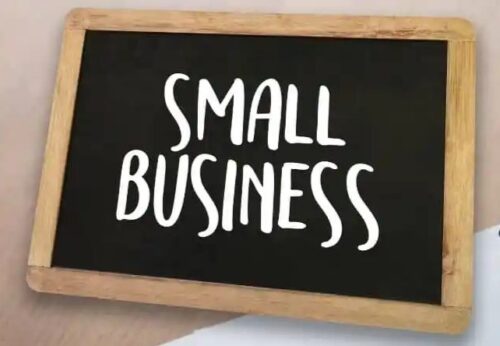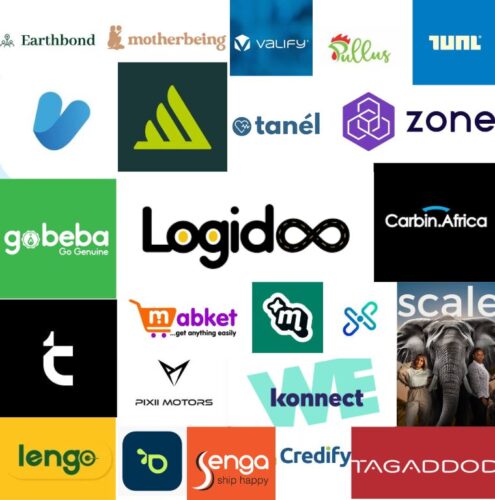
We have curated a couple of startups which seem to be showing a lot of promise this new year (2025). These companies were shortlisted for their potential to drive significant growth, disrupt markets, and establish a strong product-market fit.
The 25 Promising Startups for 2025
1. TUNL
This South African parcel shipping platform connects local merchants and manufacturers with customers in the US, UK, and Europe. By streamlining exports through parcel aggregation, automated shipping, customs brokerage, and last-mile delivery, TUNL simplifies global logistics. Founded in 2021 by Matthew Davey and Craig Lowman, the company secured $1 million in pre-seed funding in 2023.
Why it stands out: TUNL benefits from its founders’ deep knowledge of e-commerce and logistics, with expertise in establishing European distribution networks and operating as a global e-retailer.
2. Valify
Established in 2018 by Omar Abdelwahed and Ibrahim Eid, Valify is an Egyptian RegTech platform providing digital identity solutions to financial institutions, telecom operators, e-commerce platforms, and fintech companies.
Why it stands out: The founders bring a unique combination of product development, entrepreneurship, and financial expertise, enabling Valify to address regional challenges in digital identity with resilience and innovation.
3. Motherbeing
Motherbeing is an Egyptian health-tech startup focused on empowering Arab women through educational content, an Arabic AI chat assistant, and diagnostic services tailored to their needs. Founded in 2022 by Nour Emam, Yousef Elsamaa, and Ahmed Abuo Hashem, the company is currently raising a seed round.
Why it stands out: With minimal competition in this niche market, Motherbeing’s rapid user growth and high engagement rates highlight its potential for sustainable impact.
Pullus Africa, a Nigerian agritech platform founded in 2022 by Opeoluwa Fayomi, connects smallholder farmers with commercial buyers. The platform integrates agricultural extension services to help farmers meet industry standards while securing reliable market access. Pullus raised $150,000 in pre-seed funding in 2023 and an undisclosed seed round in early 2024.
Why it stands out: Opeoluwa’s experience as a poultry aggregator provides unique insights into the ecosystem’s challenges, giving Pullus a competitive edge.
5. Tanel Health
Based in Senegal, Tanel Health is a digital insurance platform bridging employers, employees, and healthcare providers. Launched in 2020 by Mouhamed Ndoye and Makhtar Diop, the company has raised $575,000 to date and aims to expand access to healthcare coverage in underserved markets.
Why it stands out: Tanel addresses inefficiencies in traditional insurance processes while expanding healthcare access, supported by a leadership team with strong market understanding and execution capabilities.
6. MABKET
Mabket is a Nigerian E-Commerce platform founded by Moses Adeboye, which is dedicated to empowering small and medium-sized businesses (SMBs) by offering a user-friendly platform for seamless online selling. With three flexible subscription plans—Starter, Premium, and Standard—it caters to diverse business needs.
Why it stands out: Mabket distinguishes itself by empowering small and medium-sized businesses (SMBs) to thrive in the online marketplace. With their flexible subscription plans, seller autonomy and assurance of authenticity, they simplify e-commerce by eliminating the technical and logistical barriers entrepreneurs often face, enabling them to showcase their products to a global audience.

6. Apollo
Founded in 2016 by Eli Pollak, Benjamin Njenga, and Earl St Sauver, Apollo empowers farmers in Kenya and The Gambia with tools like agronomic machine learning, remote sensing, and mobile technology. The platform facilitates access to credit, high-quality farm inputs, and personalized advice, helping farmers increase productivity and profitability. Apollo has raised over $88.5 million in funding.
Why it stands out: With climate tech gaining significant investor interest, Apollo is well-positioned to continue its impactful work addressing climate challenges and supporting farmers.
7. Zone
Zone, launched in 2022 by Obi Emetarom and Wale Onawunmi, is a regulated blockchain network enabling fiat payments and digital currency issuance. The company’s Layer-1 blockchain network facilitates a seamless transition to digital currencies and raised $8.5 million in March 2024.
Why it stands out: Zone’s decentralized approach has the potential to revolutionize payment networks on a global scale.
Carbin Africa is a Nigerian digital marketplace specializing in used cars. With an AI-driven platform offering real-time access to over 1,800 unique car listings, the company caters to car dealers and agents seeking a robust repository and faster inventory turnover. Founded in 2023 by Fawaz Abdul and Femi Oriowo, Carbin Africa has raised over $300,000 across two funding rounds, including a seed round from 54Collective. The company reported an 8x increase in monthly revenues in 2024.
Why it stands out: The co-founders leverage complementary expertise from leading automotive companies and practical experience as auto dealers, positioning the startup for continued growth.
9. Vendy
Vendy, established in 2021 by Kayode Disu and Peter Ekunkoya, helps merchants automate processes such as inventory management, invoicing, and in-app payments via WhatsApp. Buyers can browse catalogs, place orders, and make payments without downloading an app. Vendy received backing from Ventures Platform, Voltron Capital, and Y Combinator.
Why it stands out: By streamlining commerce on WhatsApp, Vendy simplifies the buying and selling experience for merchants and customers alike, leveraging partnerships like Paystack for payments.
10. Logidoo
Logidoo is a Moroccan logistics startup providing cross-border services to e-commerce businesses. Specializing in end-to-end logistics, it raised $1.55 million in seed funding earlier this year to expand its operations to Senegal, Ivory Coast, and Tunisia.
Why it stands out: By improving intra-African trade, Logidoo is enabling the African Continental Free Trade Area (AfCFTA) and creating new trade routes. Its cross-border logistics solutions position it as a key player in Africa’s logistics ecosystem.
11. GoBeba
Founded in 2019 by Peter Ndiang’ui and Lesley Mbogo, GoBeba is a Kenyan e-commerce platform that facilitates the purchase of household essentials through a digital retail service. After closing an undisclosed pre-seed funding round in 2024, the company leverages a network of micro-warehouses to ensure efficient and convenient delivery to customers.
Why it stands out: GoBeba excels in building strong partnerships that foster customer loyalty, driving repeat business. The company’s focus on operational excellence and customer-centric strategies positions it as a promising player in the evolving e-commerce sector.
12. EarthBond
Launched in 2023 by Chidalu Onyenso, EarthBond is a Nigerian clean energy marketplace that connects small and medium-sized businesses with solar energy solutions tailored to their energy demands and credit options.
Why it stands out: EarthBond’s asset-light business model positions it for rapid growth and scalability. The ability to harness carbon offset credits makes it an attractive investment, as it not only introduces essential foreign exchange inflows but also strengthens the credit portfolios of financing institutions by mitigating risks through additional foreign currency streams.
13. Scale
Scale is a South African fintech company that provides the essential tools for launching and scaling card programs both locally and globally. Launched in 2023 by Barbara Woollams and Miranda Perumal, a former director at Visa, Scale raised $700,000 in pre-seed funding in 2024.
Why it stands out: Scale addresses the inefficiencies in Africa’s card-issuing process, which often takes up to a year or more. With its founders’ extensive experience in fintech, Scale is positioned to streamline and revolutionize the card-issuing landscape in Africa.
14. Talstack
Founded in 2023 by Seni Sulyman and Kayode Oyewole, Talstack is a Nigerian Edtech company offering a platform that identifies skills gaps, recommends microlearning content, and tracks career progression. In 2023, Talstack raised $850K in a pre-seed round led by Ventures Platform, with additional investments from TLcom, Voltron Capital, and Golden Palm Investments.
Why it stands out: Talstack addresses a critical gap in Africa by aligning skills acquisition with workforce demands. Its platform offers tailored learning solutions, empowering businesses to build a competitive, future-ready workforce with localized, practical insights.
15. Lengo
Founded in 2022 by Max A. Smith, Roger-Xavia Macia, and Ismaila Seck, Lengo is a software-as-a-service platform that connects retailers and FMCG companies with real-time sales data, inventory, and pricing insights.
Why it stands out: Lengo bridges the data gap in informal markets, offering FMCG companies and retailers the tools to optimize operations. With its ability to enhance decision-making and scalability, Lengo is poised to drive growth in the African retail ecosystem.
16. Mira
Mira, founded in 2024 by Ted Oladele, is a point-of-sale and management system aimed at improving operations and increasing sales for restaurants and food businesses. The company raised $200,000 in a family and friends funding round in 2024 and is currently in the process of raising a seed round.
Why it stands out: The founders bring substantial experience from their roles in leading African payment companies, such as Paystack and Flutterwave, positioning Mira as a promising venture in the foodservice sector.
17. GoLemon
GoLemon, a Nigerian startup founded by four former Paystack employees—Yinka Adewuyi, Gbadegbo Gbade-Oyelakin, Abdulrahman Jogbojogbo, and Abiola Showemimo—delivers groceries and household products directly to homes and businesses, managing inventory and fulfillment centers.
Why it stands out: With an experienced founding team, GoLemon has quickly validated its product-market fit. Its ability to meet the growing demand for convenient delivery solutions positions it for promising growth in the logistics and retail sectors.
18. Borderless
Founded in 2023, Borderless provides the infrastructure needed for community-driven investments, offering simplified compliance, reporting, and multi-currency movement. The startup is currently raising $500,000 in a pre-seed round.
Why it stands out: Borderless taps into the potential of the African diaspora, creating opportunities for joint investments and collaborations. Its team, which includes one of the co-founders of HoaQ, is well-positioned to support businesses started by Africans globally.
19. Tagaddod
Tagaddod, based in Egypt, is a cleantech startup focused on converting used cooking oil into biodiesel, which is then exported to European markets. Founded in 2013 by Nour El-Assal and Mariam Afifi, the company raised $1.3 million in funding, including a $1 million pre-seed round from Kepple Africa Ventures and LoftyInc Capital in 2021.
Why it stands out: Tagaddod’s model effectively combines climate action with waste management, creating a new export market for African waste by integrating it into the global energy supply chain. This innovative approach opens up new income-generating opportunities for African markets.
20. Credify
Credify is a Ugandan startup founded in 2022 by Daniel Kagame Ndahiro, focusing on trade financing and ocean freight forwarding to facilitate cross-border trade. The company raised an undisclosed pre-seed round in April 2024.
Why it stands out: Credify is disrupting the Africa-China trade space by addressing the inefficiencies in trade finance and logistics. Its strong business model, low default risk, and expansion plans make it an attractive investment opportunity.
21. Pixii Motors
Based in Tunisia, Pixii Motors, founded in 2021 by Anis Fekih and Wafa Difi, addresses urban mobility challenges with electric scooters designed for last-mile delivery. The company focuses on scalable software and personalized scooter designs and is raising a $1.5 million seed round.
Why it stands out: Pixii’s subscription-based model and eco-friendly scooters reduce CO2 emissions and operational costs, creating strong unit economics and positioning the company for European market expansion.
22. Senga
Senga is a Kenyan logistics platform that reduces delivery timelines for FMCG companies by consolidating fragmented loads and ensuring delivery to supermarkets within 48 hours.
Why it stands out: Senga’s approach addresses a gap in the African logistics market by offering a reliable solution for the movement of goods from factories to supermarkets across Kenya, without relying on warehouses.
23. PharmacyMarts
Launched in 2021, PharmacyMarts is Egypt’s largest digital pharmaceutical marketplace, connecting pharmacies with suppliers for medicines, medical supplies, and cosmetics at competitive prices.
Why it stands out: PharmacyMarts addresses inefficiencies in the pharmaceutical supply chain in Egypt, where pharmacies play a crucial role in healthcare. The company’s strong market presence, with over 11,000 pharmacies onboarded, shows its capability to digitize and improve this critical sector.
24. Konnect
Konnect, founded in 2021 by Amin Ben Abderrahman, is a Tunisia-based online payment solution offering features like payment links, plugins, and API integration. It is licensed by the Central Bank of Tunisia and PCI DSS compliant.
Why it stands out: Konnect has the potential to become a leader in digital payments in North Africa, addressing the region’s challenges in this sector. The company’s organic growth and product innovation demonstrate its strong market fit.
25. Muda
Muda, founded by Suleiman Murunga, is a payment infrastructure company offering FX OS and orchestration APIs powered by stablecoins to streamline cross-border payments and treasury operations across Africa. The startup raised an undisclosed pre-seed round in 2022.
Why it stands out: Muda’s founder, with experience in scaling one of Uganda’s largest fintechs, is well-equipped to address the challenges of cross-border payments in Africa, with a business model that reduces volatility and enhances profitability.


